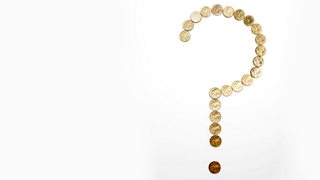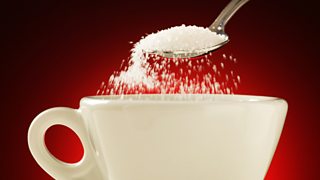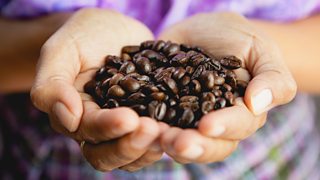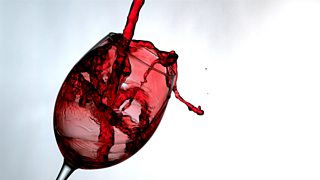The sins, the vices... the naughty but nices
To mark his new series exploring the economics of 'goods that might also be described as bads', comedian Simon Evans aims his sights at the real legal highs. On trial are... Tobacco, alcohol, coffee, and sugar. What is it that makes us love these little 'treats' so much and why is there still money to be made out of them?
1. Up in smoke
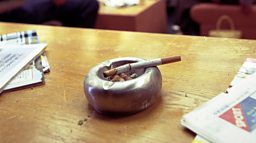
Tobacco, the good old-fashioned villain of the piece, is widely perceived to be on its last gasp in this country. Slick, cryptic and sexy cigarette ads have long since been replaced by shots of bloody organic matter dribbling out of a lit fag, echoing, on my local billboard, the fastfood meat feast which was pictured in a supposedly tempting shot just below.
Yet, last gasp or not, 10 million Brits still smoke, a customer base many industries would happily give their right lung for. And in China, where retirement plans are often hazy at best, tobacco use is growing fast. The sheer economic resilience of this product is remarkable and – very nearly – inspirational.
2. ‘Demon’ drink
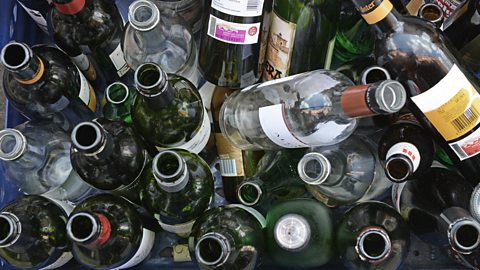
"I like a drink as much as the next man... about 11.6 litres of pure alcohol per year..."
...Simon Evans uncovers the figures behind the booze.
Alcohol is regarded with a good deal more unalloyed affection in this country and beyond. “Some people are just born two drinks below par,” for instance, and “Alcohol - The cause of – and answer to - all the world’s troubles”.
Yet perhaps we underestimate just how many of those troubles it really does cause, and at what economic cost.
Incredibly, according to our expert guest David Nutt, professor of Neuropsychopharmacology at University College of London, there could be an alternative. . But it’s one that the monks of a famous Devonshire Abbey, responsible for a certain notorious ‘tonic wine’ are perhaps praying never catches on…
3. Grounds for a habit
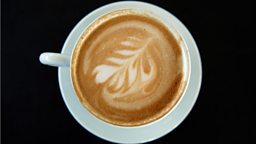
Coffee is a drug I view with suspicion, yet thus far, I can pin nothing on it beyond the odd restless night. Economically, it is the fuel at the heart of a genuine revolution.
Whether it’s the exciting steam-powered machinery, the heavily-illustrated arms of the baristas, or the classy black and white photos of geriatric Italian sex pests on the walls, Britain has fallen in love with coffee shops, perhaps the only sound economic model for operating at street level in Britain’s town centres these days.
They are also increasingly the UK’s second (or even only) office. There is money rolling in and if you think your loyalty card puts you ahead of the pack, think again.
4. Sweet tooth
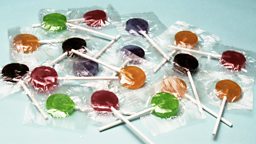
But it’s the sugar in your – or at least my – coffee that is the most alarming presence in this series, perhaps because it seems so benign. More people are now dying worldwide of eating too much than not enough and the fingers of suspicion are increasingly forming a pointing consensus in the direction of sugar.
Sugar is in everything now, from your morning latte to a slice of Mrs Bakerwife’s Traditional Sweet and Sour Venison Wellington. It has more aliases than ISIS and is almost certainly a greater threat to your children. The only way to tell if your kids’ food has too much sugar in it is to see if they want some more. If they do, it has. You might as well profit - if only to pay the medical bills.
For a weekly lesson in the price of these every day vices tune in to Simon Evans Goes to Market, Wednesdays 6.30pm or .
More from Radio 4
-
![]()
We dream about it, argue about it, worry about it, celebrate it, spend it, save it... but what is it?
-
![]()
The Food Programme digs into the debate about the role of sugar in our lives
-
![]()
The Food Programme traces the money we pay for a cup along the supply chain
-
![]()
Dr Sally Marlow on the chemical processes that affect the way we feel after a drink
